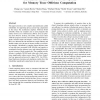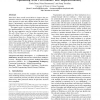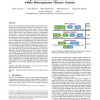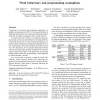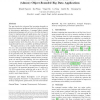ASPLOS
2015
ACM
8 years 7 months ago
2015
ACM
ASPLOS
2015
ACM
8 years 7 months ago
2015
ACM
This paper presents a new compiler and architecture called GhostRider for supporting privacy preserving computation in the cloud. The architecture employs Oblivious RAM (ORAM) whi...
ASPLOS
2015
ACM
8 years 7 months ago
2015
ACM
Incremental computation strives for efficient successive runs of applications by re-executing only those parts of the computation that are affected by a given input change instea...
ASPLOS
2015
ACM
8 years 7 months ago
2015
ACM
Information security can be compromised by leakage via lowlevel hardware features. One recently prominent example is cache probing attacks, which rely on timing channels created b...
ASPLOS
2015
ACM
8 years 7 months ago
2015
ACM
As user demand scales for intelligent personal assistants (IPAs) such as Apple’s Siri, Google’s Google Now, and Microsoft’s Cortana, we are approaching the computational lim...
ASPLOS
2015
ACM
8 years 7 months ago
2015
ACM
There have been several recent efforts to improve the performance of fences. The most aggressive designs allow postfence accesses to retire and complete before the fence completes...
ASPLOS
2015
ACM
8 years 7 months ago
2015
ACM
Systems from smartphones to supercomputers are increasingly heterogeneous, being composed of both CPUs and GPUs. To maximize cost and energy efficiency, these systems will increa...
ASPLOS
2015
ACM
8 years 7 months ago
2015
ACM
ASPLOS
2015
ACM
8 years 7 months ago
2015
ACM
Concurrency is pervasive and perplexing, particularly on graphics processing units (GPUs). Current specifications of languages and hardware are inconclusive; thus programmers oft...
ASPLOS
2015
ACM
8 years 7 months ago
2015
ACM
The past decade has witnessed the increasing demands on data-driven business intelligence that led to the proliferation of data-intensive applications. A managed object-oriented p...

